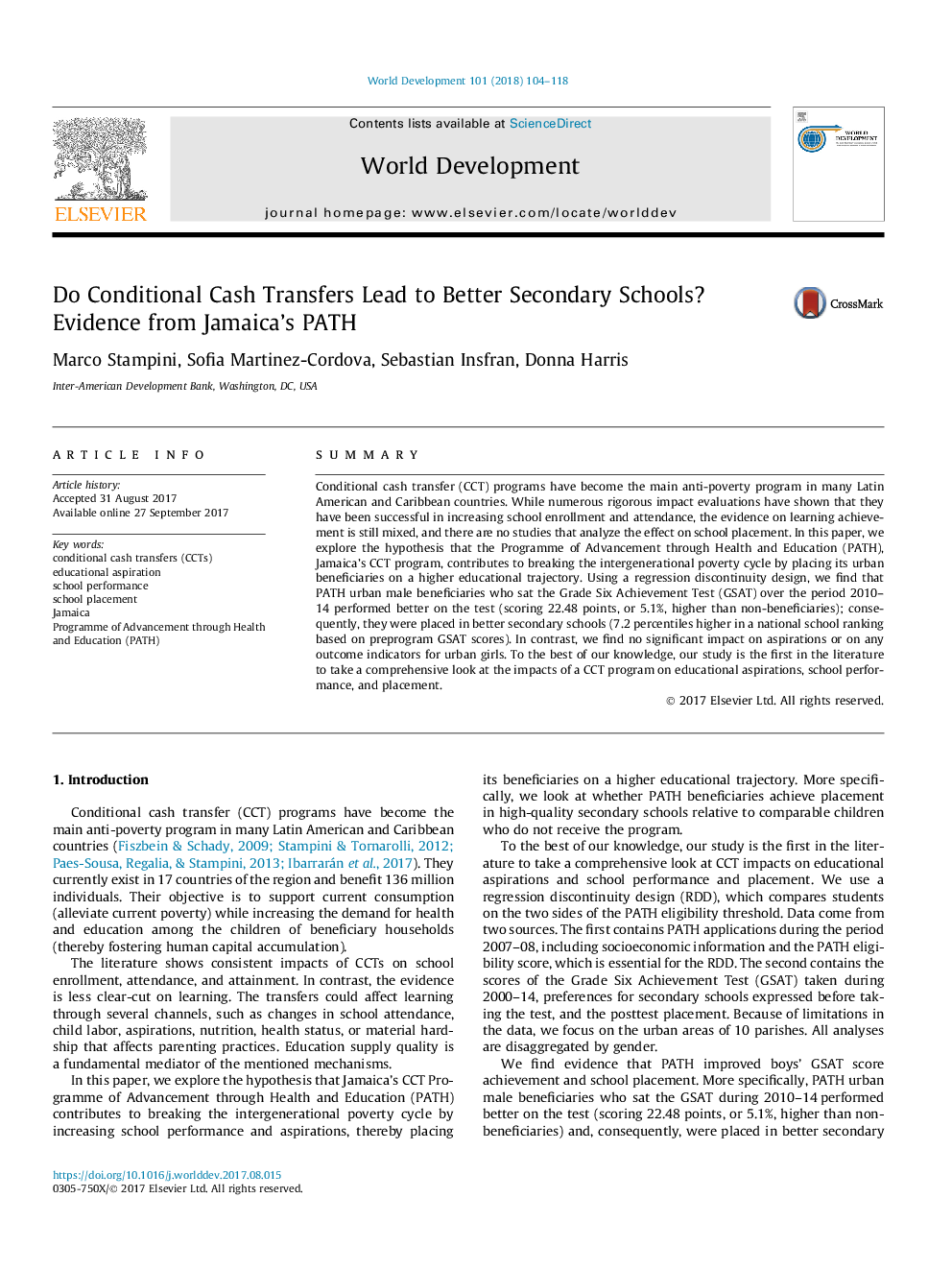| Article ID | Journal | Published Year | Pages | File Type |
|---|---|---|---|---|
| 5104988 | World Development | 2018 | 15 Pages |
Abstract
Conditional cash transfer (CCT) programs have become the main anti-poverty program in many Latin American and Caribbean countries. While numerous rigorous impact evaluations have shown that they have been successful in increasing school enrollment and attendance, the evidence on learning achievement is still mixed, and there are no studies that analyze the effect on school placement. In this paper, we explore the hypothesis that the Programme of Advancement through Health and Education (PATH), Jamaica's CCT program, contributes to breaking the intergenerational poverty cycle by placing its urban beneficiaries on a higher educational trajectory. Using a regression discontinuity design, we find that PATH urban male beneficiaries who sat the Grade Six Achievement Test (GSAT) over the period 2010-14 performed better on the test (scoring 22.48 points, or 5.1%, higher than non-beneficiaries); consequently, they were placed in better secondary schools (7.2 percentiles higher in a national school ranking based on preprogram GSAT scores). In contrast, we find no significant impact on aspirations or on any outcome indicators for urban girls. To the best of our knowledge, our study is the first in the literature to take a comprehensive look at the impacts of a CCT program on educational aspirations, school performance, and placement.
Related Topics
Social Sciences and Humanities
Economics, Econometrics and Finance
Economics and Econometrics
Authors
Marco Stampini, Sofia Martinez-Cordova, Sebastian Insfran, Donna Harris,
